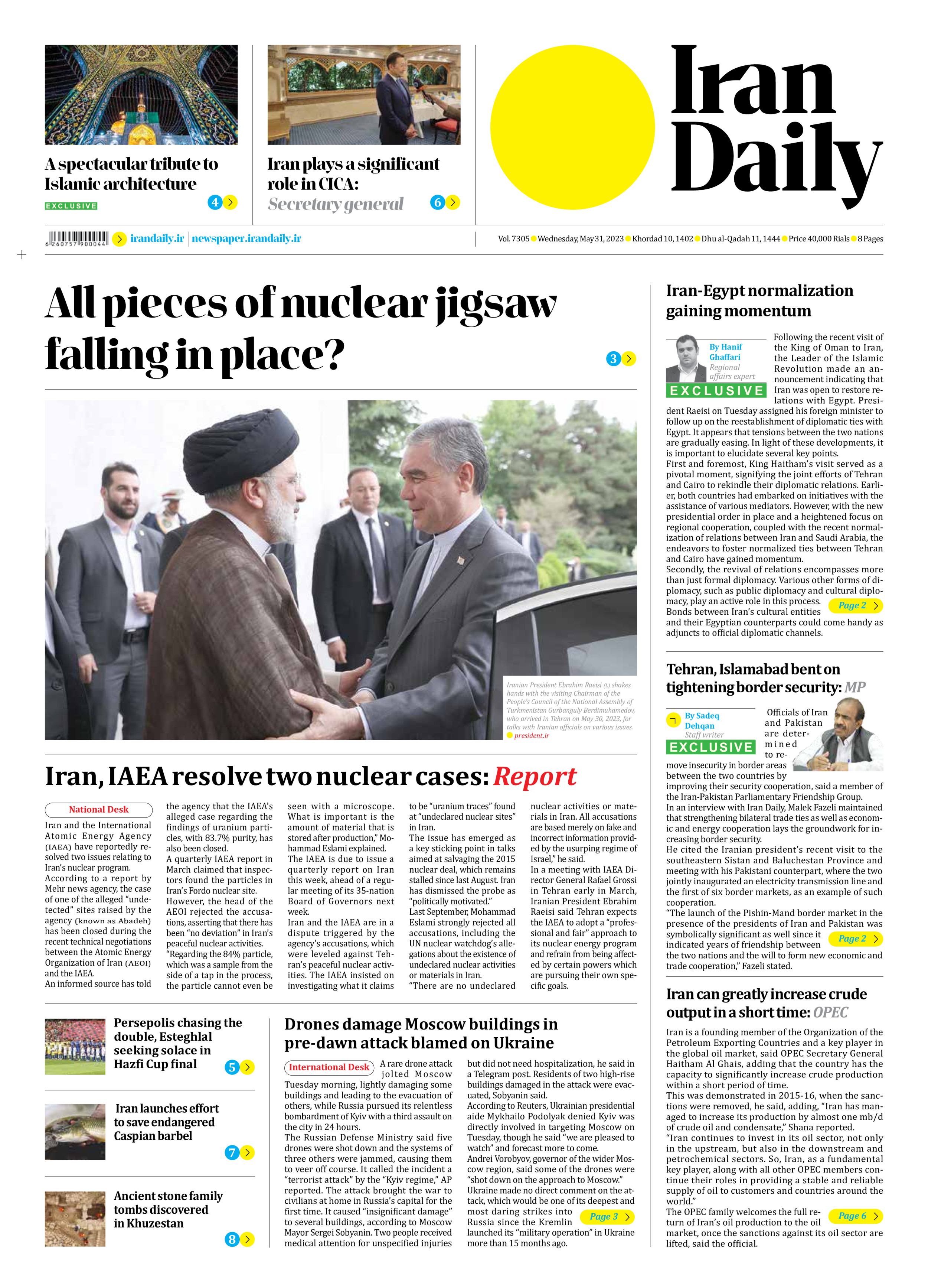
Iran, IAEA resolve two nuclear cases: Report
Iran and the International Atomic Energy Agency (IAEA) have reportedly resolved two issues relating to Iran’s nuclear program.
According to a report by Mehr news agency, the case of one of the alleged “undetected” sites raised by the agency (known as Abadeh) has been closed during the recent technical negotiations between the Atomic Energy Organization of Iran (AEOI) and the IAEA.
An informed source has told the agency that the IAEA’s alleged case regarding the findings of uranium particles, with 83.7% purity, has also been closed.
A quarterly IAEA report in March claimed that inspectors found the particles in Iran’s Fordo nuclear site.
However, the head of the AEOI rejected the accusations, asserting that there has been “no deviation” in Iran’s peaceful nuclear activities.
“Regarding the 84% particle, which was a sample from the side of a tap in the process, the particle cannot even be seen with a microscope. What is important is the amount of material that is stored after production,” Mohammad Eslami explained.
The IAEA is due to issue a quarterly report on Iran this week, ahead of a regular meeting of its 35-nation Board of Governors next week.
Iran and the IAEA are in a dispute triggered by the agency’s accusations, which were leveled against Tehran’s peaceful nuclear activities. The IAEA insisted on investigating what it claims to be “uranium traces” found at “undeclared nuclear sites” in Iran.
The issue has emerged as a key sticking point in talks aimed at salvaging the 2015 nuclear deal, which remains stalled since last August. Iran has dismissed the probe as “politically motivated.”
Last September, Mohammad Eslami strongly rejected all accusations, including the UN nuclear watchdog’s allegations about the existence of undeclared nuclear activities or materials in Iran.
“There are no undeclared nuclear activities or materials in Iran. All accusations are based merely on fake and incorrect information provided by the usurping regime of Israel,” he said.
In a meeting with IAEA Director General Rafael Grossi in Tehran early in March, Iranian President Ebrahim Raeisi said Tehran expects the IAEA to adopt a “professional and fair” approach to its nuclear energy program and refrain from being affected by certain powers which are pursuing their own specific goals.







